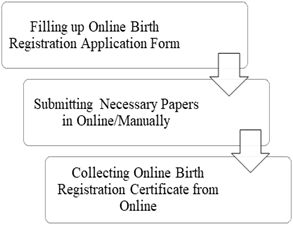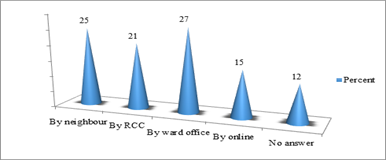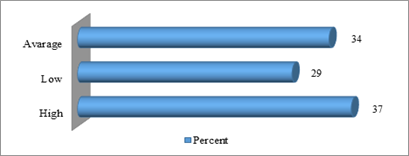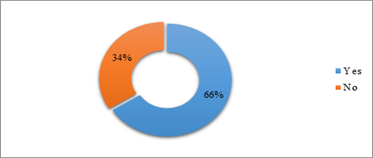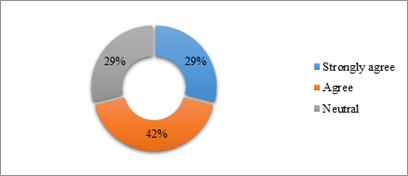Research Article
E-birth Registration in Raj Shahi City Corporation, Bangladesh: Problematics and Inferential Solutions
- Sabbir Hasan *
- S.M. Akram Ullah
University of Rajshahi, Rajshahi, Bangladesh.
*Corresponding Author: Sabbir Hasan, University of Rajshahi, Rajshahi, Bangladesh.
Citation: Hasan S., S.M. Akram Ullah. (2023). E-birth Registration in Rajshahi City Corporation, Bangladesh: Problematics and Inferential Solutions, Clinical Case Reports and Studies, BRS Publishers. 2(1); DOI: 10.59657/2837-2565.brs.23.014
Copyright: © 2023 Sabbir Hasan, this is an open-access article distributed under the terms of the Creative Commons Attribution License, which permits unrestricted use, distribution, and reproduction in any medium, provided the original author and source are credited.
Received: December 19, 2022 | Accepted: January 16, 2023 | Published: January 23, 2023
Abstract
The purport of this study is to address electronic birth registration information system (EBRIS) programme in RCC with its existing problems. Rajshahi City Corporation (RCC) is one of the leading municipalities in e-governance adaptation in Bangladesh. As a part of e-governance, RCC, jointly with the local government division under the ministry of local government, has initiated electronic birth registration information system (EBRIS) in 2001 with the financial and technical support of UNICEF. Based on inference, researchers have recommended some possible solutions for solving these problems. As empirical research, this study, based on primary and secondary sources of data and information, has found some problems existed inside the EBRIS programme incorporated in RCC.
Keywords: electronic birth registration; e-governance; rajshahi city corporation; bangladesh
Introduction
Raj Shahi City Corporation (RCC) has begun its journey to provide e-service through electronic birth registration information system (EBRIS) in 2001. It was the first pilot project that RCC had introduced for the first time in the whole Bangladesh. The present state of e-services of Raj Shahi City Corporation (RCC) is very progressive. Presently, it is providing almost five to seven e-services to the citizens. Among all of the e-services, electronic birth registration information system and smart auto-rickshaw management system are implemented. Raj Shahi City Corporation as a body of urban local government, at first, introduced online birth registration or electronic birth registration information system (EBRIS) at urban local level. EBRIS is still the most successful e-governance projection here. But at present, it is facing a lot of problems. Basically, the introduction of a new software created some complications for the service providers. They have no proper training. For this reason, they cannot operate the new software. Beside these problems the server system is not so developed. Recently, the supervision of DC office has created a new hazard for the citizens. The parents of a new born offspring are facing so many difficulties to accomplish electronic birth registration of their children within fourteen days of birth. This paper contains the process of electronic birth registration in RCC.
E-Birth Registration
According to the article 24 of International Covenant on Civil and Political Rights birth registration is a fundamental right. However, article 7 of the Convention on the Rights of the Child declares it as a child right (United Nations, 2020). ‘E’ means electronic. And birth registration is a process by which the government authority records the birth related information (like date of birth, parents’ information, permanent address etc.) of a new born infant in civil registry. The registration of birth can be done into two ways such as manually and electronically. When the whole birth registration process is accomplished online or electronically is called e-birth registration. E-birth registration means electronic birth registration which is another called online birth registration and digital birth registration (Todres, 2003). In this digital era, the online birth registration is more acceptable in all respects than the manual. E-birth registration certificate is an essential element for school admission for a child. At present, no one can get e-passport without his/her up-to-date digital birth registration certificate. For getting smart national ID card, a person must have an online birth certificate. Therefore, it is obvious that electronic birth registration is an integral part of everyone’s life.
Raj Shahi City Corporation: An Overview
Rajdhani is a tranquil city situated in the North Western side of Bangladesh beside the fringe of Padma River (P. K. et al., 2015). Raj Shahi City Corporation (RCC) is located in between 24’20’ and 24’24’ North latitudes and in between 88’32’ and 88’40’ East longitudes with an area of 97.18 sq km. RCC was established as a municipality in 1876. That municipality was upgraded to Municipal Corporation in 1987. And finally, this Municipal Corporation was upgraded to City Corporation in 1991 (Banglapedia, 2021). According to the Population and Housing Census, 2011, RCC is divided into 30 wards and 283 mahallahs with 99245 households. At present, the total population of RCC is 449756 (male 232974+ female 216782) (BBS, 2021). Raj Shahi city is by and large known as Silk City, Education City and Clean City. From the Pakistan period, Raj Shahi was well known as a ‘Silk City’ for its huge production of the finest quality of silk. Raj Shahi silk has won the status of Geographical Indication (GI) product of Bangladesh in 2021.However, the Bangladesh Sericulture Board (BSB) is situated in Raj Shahi (Asif et al., 2013). The literacy rate of RCC is 74 percent now. Almost all kinds of public and private educational institutions are situated in Raj Shahi. Such as universities, medical colleges, agricultural college, teachers training colleges, law colleges, polytechnic institutes, homeopathic colleges, primary teachers training institute, survey institute, nursing institute, institute of health technology, secondary school, primary school and madrasas. However, Raj Shahi Collegiate School is the first secondary school in Bangladesh which was established in 1828. On the other side, Raj Shahi College is the third oldest college in Bangladesh which was established in 1873. Raj Shahi has won the status of ‘Education City’ because of its affluent history of education (Banglapedia, 2021). Raj Shahi is one of the cleanest cities not only among Bangladesh but also in the world. Raj Shahi city has gained the fame of clean city due to for its fresh air and green environment. The pathways of Raj Shahi city are neat and clean [1]. Recently, RCC has been awarded as “Environment Friendly City of the Year 2020” in 2020 (Business Standard, 2020).
Objectives
The prime objectives of this study are as follows:
- to highlight every in and out of EBRIS programme of Rajshahi City Corporation;
- to address the existing problems of electronic birth registration of RCC;
- to recommend some possible solutions based on inference.
Methods and Materials
This study is based on empirical method. Both primary and secondary sources have been used to collect necessary data and information. In this study, one set of structured questionnaires was prepared with both some open ended and close ended questions for collecting the first-hand data from the targeted respondents. Ten (10) RCC officials and ten (10) data entry operators (one from each ward) were selected as key respondents for the interview. Moreover, hundred (100) EBRIS beneficiaries (ten from each word) were asked to answer on the questionnaire. Rajshahi City Corporation is located in the northern side of Bangladesh with an area of 96.68 sq. km. It is divided into 30 wards with a population of 3, 83,000 people. According to the objectives of this research, all of the service providers (functionaries) of RCC related with online birth registration, and all of the EBRIS beneficiaries are considered as the population of this study. Considering the frequency of the online birth registration service providers and EBRIS beneficiaries of RCC, Rajshahi City Corporation office and ten (10) ward offices of RCC and ten (10) selected wards of RCC are considered as sample areas for gathering necessary data. 120 respondents are estimated as samples for this study. Ten (10) RCC functionaries, ten (10) data entry operators (one from each ward) from ward offices and hundred (100) EBRIS beneficiaries have been considered as the samples for collecting data. Both probable and non-probable sampling methods are used to collect the sample from the field survey. This research randomly selected the 10 wards out of 30 wards of Rajshahi City Corporation (RCC) to specify the sample area by using a simple random sampling technique (lottery method). According to the purport of this study, purposive sampling technique has been chosen in this research for collecting the targeted sample respondents. This study has applied the purposive sampling technique to choose samples from targeted RCC functionaries such as Chief Executive Officer, Chief Health Officer, Birth and Death Registration Officer and the data entry operators of RCC ward offices (ward no, 4, 8, 11, 13, 14, 20, 22, 23, 25, 27) within the delimited sample area. On the other side, data has been collected from 100 EBRIS beneficiaries (10 from each ward) have been chosen as the respondents by using purposive sampling also.
Electronic Birth Registration in RCC
Birth registration is an initial part of child’s right. According to the information collected from Rajshahi City Corporation, it has initially carried out the birth registration manual process. But that process was subject to delays. The transfer of data was very uneasy. Correcting errors was so complicated. In this context, RCC first introduced the electronic system of birth registration in 2001. And it was the first introduction of electronic birth registration information system at urban local level in Bangladesh. At present, in online birth registration, RCC is a leading corporation among all the municipalities and city corporations in Bangladesh.
Process of Online Birth Registration
The process of online birth registration is very easy and simple. At the first step, the applicant applies for online birth registration by filling up the application form in online. After that, he/she has to submit necessary papers and information in online or manually. And finally, he/she can collect his/her online birth registration from online. Figure (1) shows the whole process of online birth registration.
Figure 1: Process of Online Birth Registration (Developed by author)
Number of Online Birth Registration in RCC
The total number of online birth registration in RCC by October 4, 2020 is shown below (Table 1).
Table 1: Number of Online Birth Registration in RCC
| Serial No. | Name of Ward | Number of Registration |
| 1 | RCC ward 1 | 26,750 |
| 2 | RCC ward 2 | 27,834 |
| 3 | RCC ward 3 | 26,316 |
| 4 | RCC ward 4 | 19,429 |
| 5 | RCC ward 5 | 21,040 |
| 6 | RCC ward 6 | 30,084 |
| 7 | RCC ward 7 | 15,929 |
| 8 | RCC ward 8 | 16,316 |
| 9 | RCC ward 9 | 19,305 |
| 10 | RCC ward 10 | 37,443 |
| 11 | RCC ward 11 | 13,280 |
| 12 | RCC ward 12 | 13,486 |
| 13 | RCC ward 13 | 13,794 |
| 14 | RCC ward 14 | 25,032 |
| 15 | RCC ward 15 | 17,460 |
| 16 | RCC ward 16 | 20,648 |
| 17 | RCC ward 17 | 28,786 |
| 18 | RCC ward 18 | 19,153 |
| 19 | RCC ward 19 | 33,402 |
| 20 | RCC ward 20 | 9.606 |
| 21 | RCC ward 21 | 15,203 |
| 22 | RCC ward 22 | 13,356 |
| 23 | RCC ward 23 | 14,716 |
| 24 | RCC ward 24 | 21,403 |
| 25 | RCC ward 25 | 18,309 |
| 26 | RCC ward 26 | 25,546 |
| 27 | RCC ward 27 | 21,593 |
| 28 | RCC ward 28 | 30,879 |
| 29 | RCC ward 29 | 23,204 |
| 30 | RCC ward 30 | 27,191 |
| Total | 6,46,627 | |
Source: Public Health Department, RCC
Birth Registration Related Fees: The fees of application for online birth registration, withdrawal of online birth certificate and correction of birth certificate are almost categorically fixed. Online birth registration related fees are enlisted as under through a table. Table (2) shows the birth registration related fees.
Table 2: Birth Registration Related Fees
| Serial No. | Purposes | Charge |
| 1 | Birth registration of a child (within 45 days) | 00 Tk |
| 2 | Birth registration of a child (from 45 days to 5 years) | 25 Tk |
| 3 | Birth registration of a child (from after 5 years to 10 years) | 50 Tk |
| 4 | Birth registration of a child (after 10 years) | 50 Tk |
| 5 | Application for the correction of birth date | 100 Tk |
| 6 | Application for the correction of parent’s name, address and other information (except birth date) | 50 Tk |
| 7 | For the withdrawal of original birth certificate (Bangla and English) both with correction | 00 Tk |
| 8 | For the withdrawal of copy of birth certificate (Bangla and English) both | 50 Tk |
Source: Collected from Data Entry Operator, Ward No, 8, RCC.
Existing Problems: It is beyond doubt that EBRIS is a successful e-governance projection in RCC from the very beginning but now RCC is facing several problems to run this programme. The e-service providers of RCC who are directly involved in EBRIS and the EBRIS beneficiaries both are facing the following problems.
Problems for 45 Day’s Child: The process of online birth registration for a 45 day’s child is very complicated. The birth registration of 45 day’s child who is born after January 1, 2001 will not be allowed to complete without its vaccine card and its parents’ up to date birth registration certificate (English and Bangla both). But it is not so easy to arrange the instant parents’ online birth certificates. On the other hand, the naming problem of parents creates a serious problem. For such complications, the percentage of online birth registration of 45 day’s children declined. The rate of online birth registration of 45 day’s children was monthly 90% in 2020 but this percentage got down by only 2% in 2021. A respondent said “My name is Shahanaz according to my birth certificate but my name is enlisted in NID (National Identity Card) as Mst. Sahanaj Parvin. Due to this problem, I could not accomplish my child’s online birth registration within 45 days.”
Software Complication: All of the ward offices of RCC have introduced new software (https://bdris.gov.bd) to apply for online birth and death registration in early 2021. This software is not as simple as before. Majority Data Entry Operators (DEO) don’t know how to operate the software. Firstly, they cannot adapt with the new software. Most of the Data Entry Operators (DEO) have learned the operating system of this software by watching some tutorial videos on YouTube. Some DEOs are solving their software problems by consulting with other operators.
Lack of Proper Training: The Data Entry Operators who are directly involved to provide the online birth and death registration related services have no formal training on ICT. Some respondents say that they have got a new software for online birth registration without any software training. For this reason, they cannot understand how they will operate the system. A respondent said, “I cannot understand the printing system of this new software.”
Supervision of DC Office: The online birth registration process is not as fast as before because of the strict supervision of the DC office. Now-a-days, the total online birth registration system is under the overall supervision of the DC office. At the beginning of the EBRIS programe, RCC authorized absolutely. No one could easily change or correct his/her information on their birth certificate easily. Now everyone has to go to the DC office for correcting his/her spelling of name or other information on their birth certificate. It is time consuming and costly.
Server Problem: Most of the data entry operators (DEOs) face server problems during application for online birth registration. And sometimes they cannot provide the online birth certificate to the applicants timely because of server problems. One of the respondents said “This server runs swiftly from 9 a.m. to 11 a.m. After 11 a.m. it works very slowly.
Views of RCC Citizens on Electronic Birth Registration in RCC
Knowledge about EBRIS: Do you know about EBRIS programme? has been asked to the respondents to measure their knowledge about EBRIS programme. The result of this field-based survey (Figure 2) indicate that a large portion of the total respondents (89%) know about the EBRIS programme. Only 11 percent (%) of the respondents don’t know anything about it.
Figure 2: Knowing about EBRIS. (Source: Field Survey, 2021).
Means of Knowing about EBRIS: To know how the city people informed about EBRIS programme, a question has been raised that by which means are they know about e-governance? (Figure 3) show that 25 percent (%) of the respondents know about EBRIS by their neighbours, 21 percent (%) by RCC. At the same time, 27 percent (%) of the respondents are known by ward offices. Only 15 percent (%) of the total respondents are known by online. And 12 percent of respondents have no answers.
Figure 3: Means of Knowing about EBRIS. (Source: Field Survey, 2021).
Opinion about Online Birth Registration Fees: The opinions of the respondents about the fees of online birth registration are shown through the following figure.
Figure 4: Opinion about Online Birth Registration Fees. (Source: Field Survey, 2021)
It is obvious in the aforementioned (Figure 4) that 37 percent (%) of the respondents opine that the fee of online birth registration is high. Contrarily, 29 percent (%) of the respondents opine that the fee is low. And 34 percent (%) respondents opine that it is average.
Problems Faced during Applying for Birth Registration in Online: On the point of problems faced during applying for birth registration, (Figure 5) clearly show that most of the respondents (78%) face some technical problems during applying for online birth registration. On the other side, 22 percent (%) of the respondents don’t face any problem in this regard. According to the opinion of a general respondent, she had faced some server problems while applying for e-birth registration of her daughter. She also said that she had to go to the nearly computer services shop three times for accomplishing her daughter’s e-birth registration due to server problem.
Figure 5: Problems Faced during Applying for Birth Registration in Online. (Source: Field Survey, 2021).
Needs of Online Birth Registration for Getting NID and Passport: The necessity of online birth registration for getting smart NID card and e-passport has been found through this survey. (Figure 6) clearly exhibits that the majority of the respondents (66%) know that their child will not get a NID and passport without online birth registration. But 34 percent (%) of the respondents don’t know anything about this.
Figure 6: Needs of Online Birth Registration for Getting NID and Passport. (Source: Field Survey, 2021).
Online Birth Registration Can Secure Children's Future: The opinions of the respondents about securing the future of children by online birth registration are shown through the following figure.
Figure 7: Online Birth Registration Can Secure Children's Future. (Source: Field Survey, 2021).
It has been found in the above (Figure 7) that 29 percent (%) of the total respondents are strongly agreed with this statement that online birth registration can secure the future of children. Similarly, 42 percent (%) of the respondents are agreed with this statement. On the other hand, 29 percent (%) respondents are in a neutral position.
Findings and Inferential Solutions
- Majority e-birth related service providers of RCC are facing several problems in time of providing the services to its citizens for the lack of proper training. RCC authority should arrange proper ICT training for making them efficient and capable.
- According to the view of 37(%) percent of the total respondents, the fees of online birth registration in RCC (mainly the online application fee for the correction of birth date) is so high. The RCC authority should concern about the high rate of the online birth registration fees.
- Almost all data entry operators of RCC ward offices who are directly engaged in providing e-birth related services are facing serious server problem. So, the authority should have a look on it for ensuring the better services.
- Unfortunately, the rate of online birth registration of 45 day’s children has declined to 2% from 100% at present. RCC authority should find the causes of decline and take strong steps to increase this rate into 100% very fast.
- About the necessity of e-birth registration, one of the respondents opined, “I was in a fix when I had gone to do my e-passport because I did not have up to date online birth registration certificate.” So, concerned authority should inform the city people about the importance of online birth registration in this digital era as well as the public awareness should be raised.
Conclusion
Now-a-days, online birth registration is indispensable for everybody’s life. Moreover, the online birth registration is required for getting a national identity card (NID), and e-passport. For children, it is necessary for school admission. The RCC authority is worried about the declining rate of online birth registration. To solve these existing problems, Rajshahi City Corporation has arranged a meeting on August 31, 2021. The president of the birth and death registration standing committee of RCC and the councilor of ward no.4 has presided over the meeting. The president of education, health and family planning standing committee of RCC and the councilor of ward no.6 was present there as a special guest. RCC secretary, Chief Health Officer and birth & death registration officer were present. Secretaries, data entry operators of all wards and The RCC team leaders were present also. They have taken the decision to aware the people about the necessity of online birth registration for their children. In that meeting, they have taken two initiatives to increase the rate of online birth registration of 45 day’s children. Firstly, RCC will inform the people about the importance of online birth registration by miking. Secondly, the health workers will announce the importance of online birth registration in every mosque of the RCC area after the jumma prayers every Friday.
References
- (2021). Banglapedia, National Encyclopaedia of Bangladesh, 8.
Publisher | Google Scholor - BBS. (2021). Statistical Yearbook of Bangladesh 2020. Dhaka: Statistics and Informatics Division, Ministry of Planning, GoB, 37.
Publisher | Google Scholor - (2020). Business Standard. Rajshahi Awarded Eco-Friendly City of the Year.
Publisher | Google Scholor - Halder, P. K. et al. (2015). Municipal Solid Waste and Its Management in Rajshahi City, Bangladesh: A Source of Energy. International Journal of Renewable Energy Research, 4 (1):169.
Publisher | Google Scholor - Ishtiaquel, Asif. et al. (2013). The Plight of the Bangladesh Silk Industry: An Empirical Investigation. Malaysian Journal of Society and Space, 9 (2):10.
Publisher | Google Scholor - Todres, Jonathan. (2003). Birth Registration: An Essential First Step towards Ensuring the Rights of All Children. Human Rights Brief, 10:(3).
Publisher | Google Scholor - UN. (2002). Birth Registration: Right from the Start. March, 2002.
Publisher | Google Scholor

